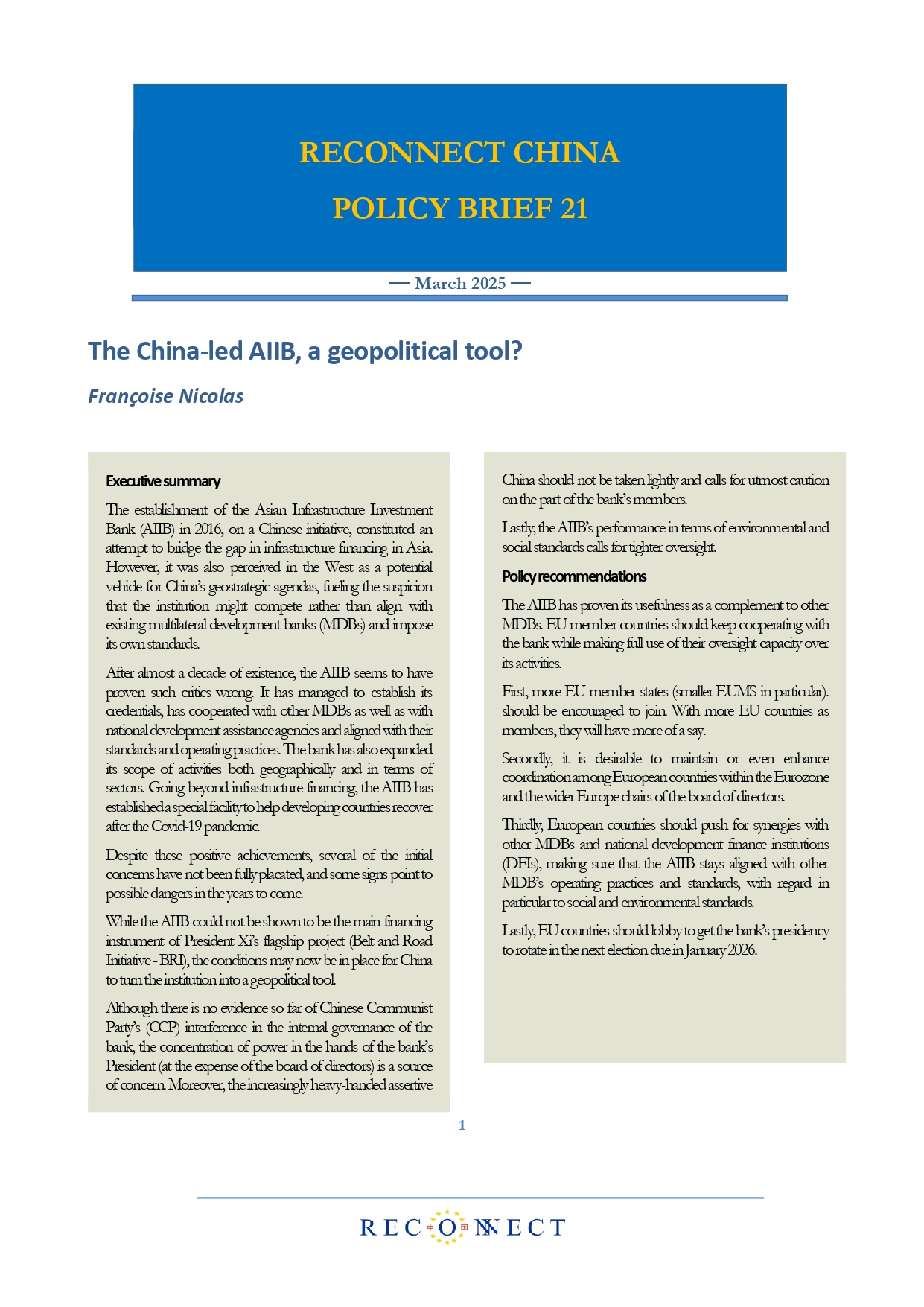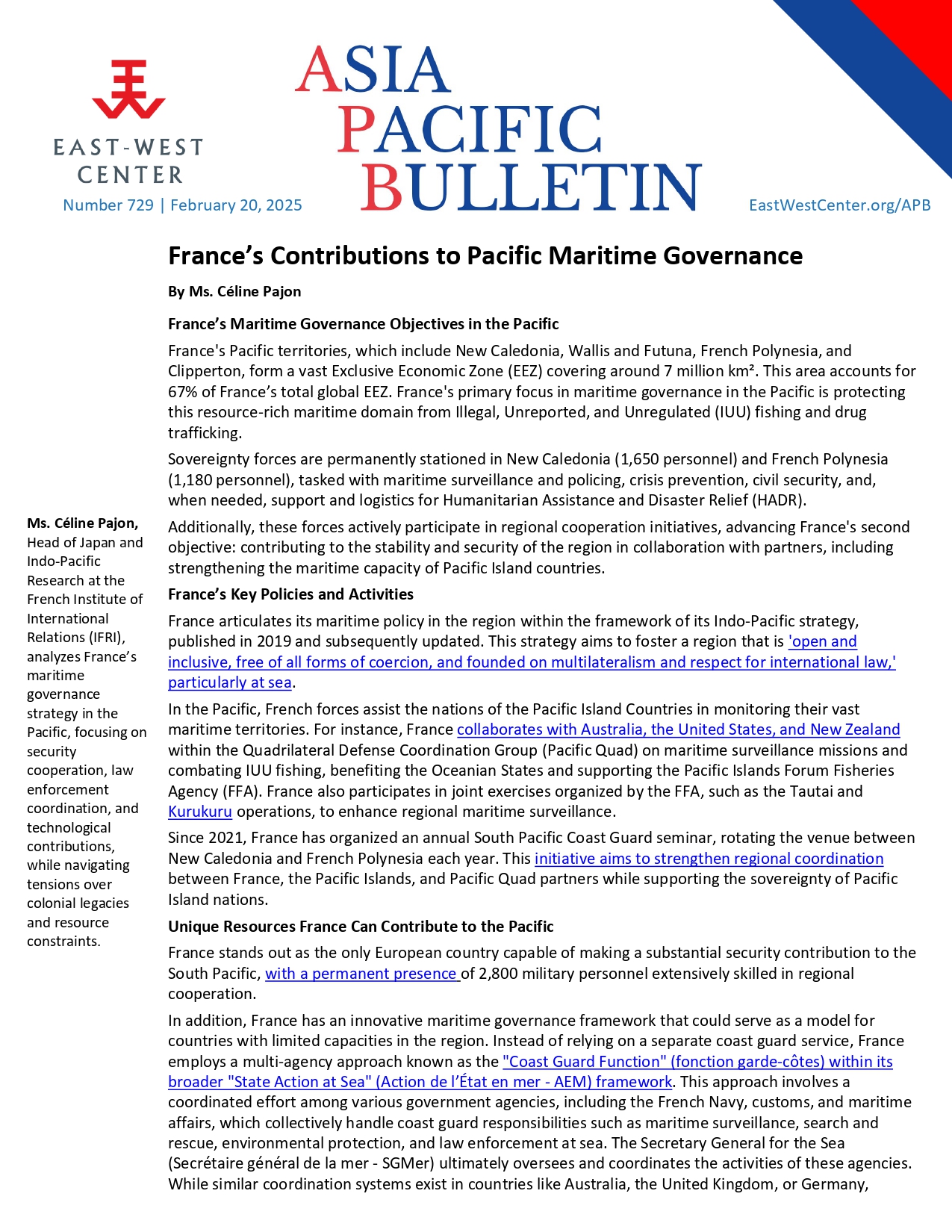The China-led AIIB, a geopolitical tool?

The establishment of the Asian Infrastructure Investment Bank (AIIB) in 2016, on a Chinese initiative, constituted an attempt to bridge the gap in infrastructure financing in Asia. However, it was also perceived in the West as a potential vehicle for China’s geostrategic agendas, fueling the suspicion that the institution might compete rather than align with existing multilateral development banks (MDBs) and impose its own standards.
After almost a decade of existence, the AIIB seems to have proven such critics wrong. It has managed to establish its credentials, has cooperated with other MDBs as well as with national development assistance agencies and aligned with their standards and operating practices. The bank has also expanded its scope of activities both geographically and in terms of sectors. Going beyond infrastructure financing, the AIIB has established a special facility to help developing countries recover after the Covid-19 pandemic.
Despite these positive achievements, several of the initial concerns have not been fully placated, and some signs point to possible dangers in the years to come.
While the AIIB could not be shown to be the main financing instrument of President Xi’s flagship project (Belt and Road Initiative – BRI), the conditions may now be in place for China to turn the institution into a geopolitical tool.
Although there is no evidence so far of Chinese Communist Party’s (CCP) interference in the internal governance of the bank, the concentration of power in the hands of the bank’s President (at the expense of the board of directors) is a source of concern. Moreover, the increasingly heavy-handed assertive China should not be taken lightly and calls for utmost caution on the part of the bank’s members.
Lastly, the AIIB’s performance in terms of environmental and social standards calls for tighter oversight.
Download the ReConnect China Policy Brief via the project’s website: Reconnect China Policy Brief 21: The China-led AIIB, a geopolitical tool?

Available in:
Themes and regions
Share
Related centers and programs
Discover our other research centers and programsFind out more
Discover all our analyses
RAMSES 2024. A World to Be Remade
For its 42nd edition, RAMSES 2024 identifies three major challenges for 2024.

France and the Philippines should anchor their maritime partnership
With shared interests in promoting international law and sustainable development, France and the Philippines should strengthen their maritime cooperation in the Indo-Pacific. Through bilateral agreements, expanded joint exercises and the exchange of best practices, both nations can enhance maritime domain awareness, counter security threats and develop blue economy initiatives. This deeper collaboration would reinforce stability and environmental stewardship across the region.
Jammu and Kashmir in the Aftermath of August 2019
The abrogation of Article 370, which granted special status to the state of Jammu and Kashmir (J&K), has been on the agenda of the Bharatiya Janata Party (BJP) for many decades.

France’s Contributions to Pacific Maritime Governance
France stands out as the only European country capable of making a substantial security contribution to the South Pacific, with a permanent presence of 2,800 military personnel extensively skilled in regional cooperation.





